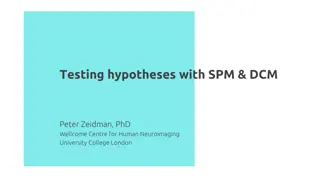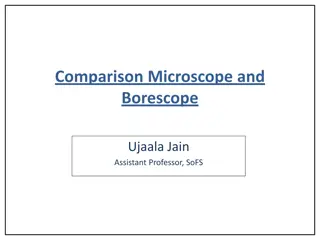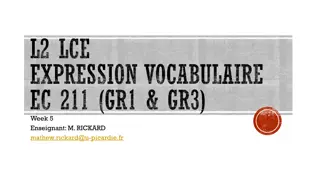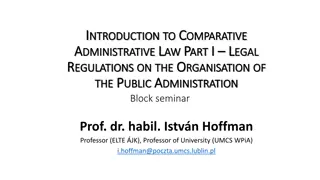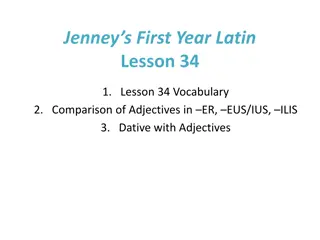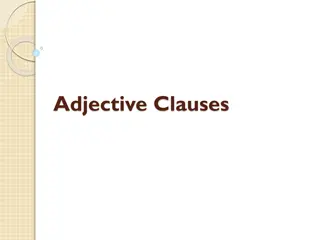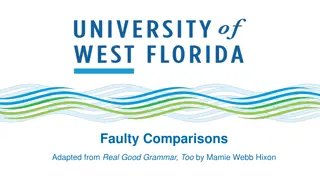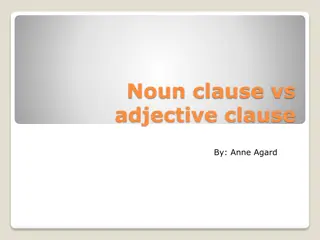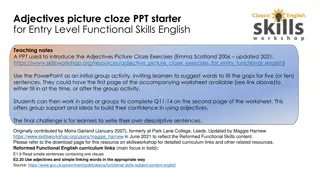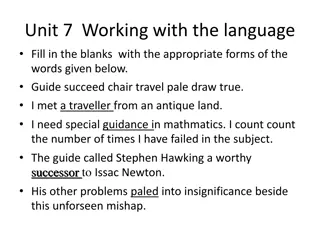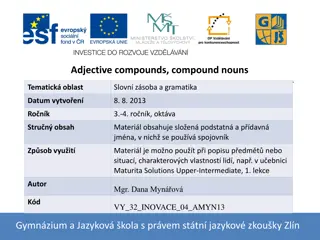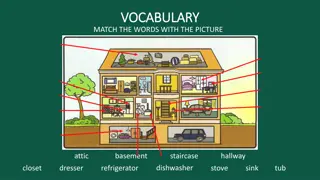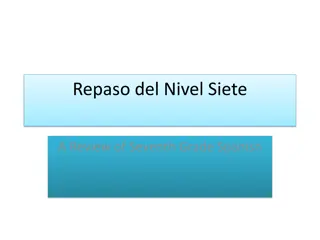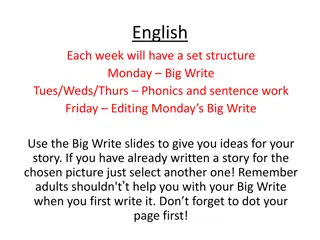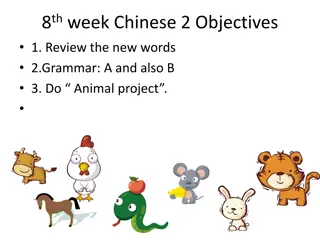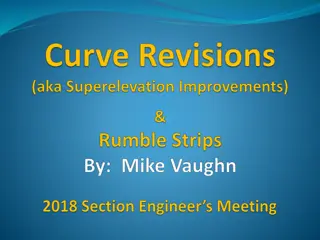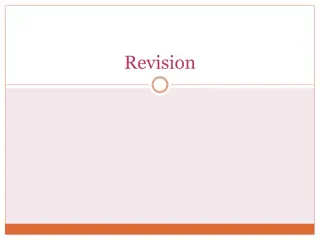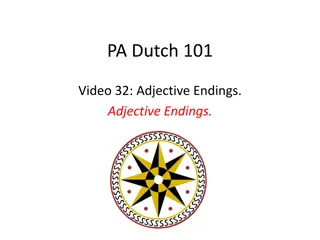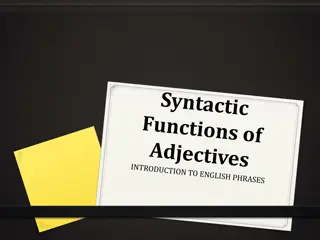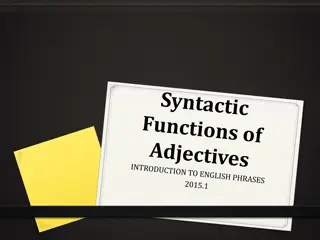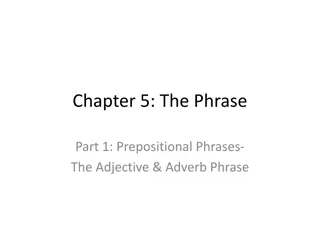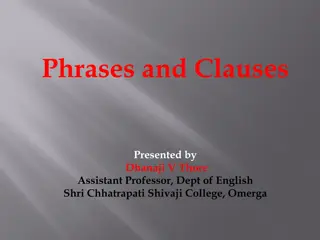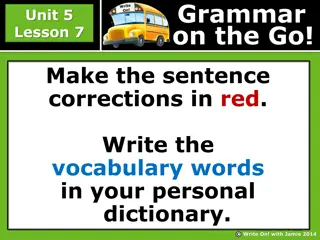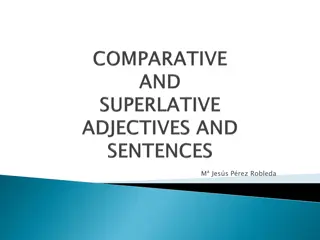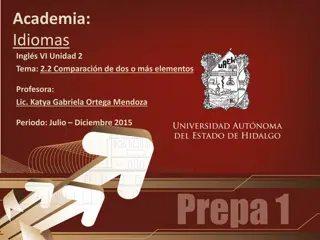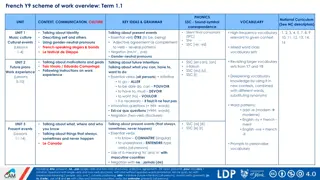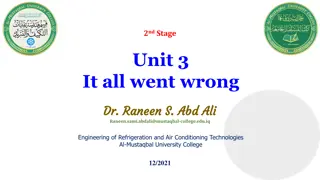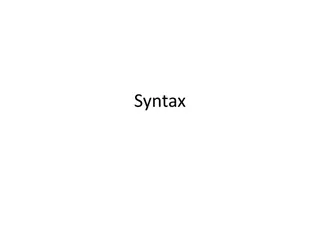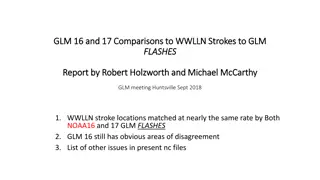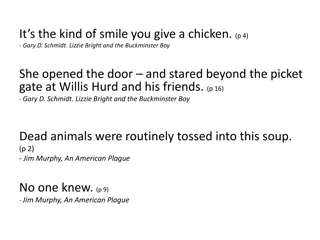Bayesian Model Comparison in Neuroimaging Research
Exploring the process of testing hypotheses using Statistical Parametric Mapping (SPM) and Dynamic Causal Modeling (DCM) in neuroimaging research. The journey from hypothesis formulation to Bayesian model comparison, emphasizing the importance of structured steps and empirical science for successful
4 views • 36 slides
Forensic Analysis Instruments: Microscope vs. Borescope
Instruments like the stereomicroscope, comparison microscope, and borescope are used in forensic analysis for individual examination, side-by-side comparison, superimposition, and barrel analysis. The comparison microscope is utilized for analyzing fired cartridge cases, while the borescope helps in
0 views • 8 slides
DERIVATIONAL MORPHOLOGY. PREFIXATION.
Derivational morphology in the English language involves forming new words by adding affixes to a base, resulting in derivatives or derived words. Prefixation is a productive process, especially for verb and adjective formation. Prefixes can be classified based on their meanings, such as negative, p
6 views • 6 slides
Comparison Microscope and Borescope
Instruments like Stereomicroscope, Comparison Microscope, and Borescope are used for individual examination, side-by-side comparison, superimposition, and analysis of barrels in forensic investigations. Comparison microscopes are used for examining fired cartridge cases but have limitations such as
1 views • 8 slides
Adjective Usage in English Language
Exploring the effective use of adjectives in English language, this content covers the positioning, punctuation, and order of adjectives. It explains the difference between predicative and attributive adjectives and provides examples to clarify their usage. Additionally, it discusses the importance
1 views • 22 slides
Comparative Analysis of Administrative Law Regulations in Public Administration
This block seminar delves into the realm of administrative law regulations, exploring topics such as the concept of Love Law, different legal approaches, pluralism in Roman law, modern pluralism, challenges of comparison, levels of comparison, and methods of legal comparison. The discussion includes
2 views • 83 slides
Degrees of Comparison in English Grammar
Degrees of comparison in English grammar refer to the different forms of adjectives and adverbs used to indicate the level of comparison between different qualities. This includes the positive degree for basic descriptions, the comparative degree for comparing two things, and the superlative degree
0 views • 17 slides
Latin Lesson 34 Vocabulary: Adjective Comparisons and Dative Constructions
Learn about adjectives in ER, EUS/IUS, ILIS forms, and how they are used in comparisons. Explore dative constructions with adjectives and enhance your Latin vocabulary with words like "aureus" (golden), "dexter" (right), "difficilis" (difficult), and more.
1 views • 32 slides
Adjective Clauses in English Grammar
Adjective clauses, also known as relative clauses, are dependent clauses that act as adjectives in sentences. They modify nouns, pronouns, or entire sentences and begin with a relative pronoun. This article explains how adjective clauses function, provides examples, and discusses the use of pronouns
1 views • 62 slides
Correct Usage of Adjective and Adverb Comparisons
Learn how to correctly compare adjectives and adverbs using the positive, comparative, and superlative forms. Avoid common mistakes like double comparisons and ensure you use the right form based on the number of items being compared. Improve your grammar skills with clear examples and revisions for
0 views • 14 slides
Learn English Comparatives and Superlatives: Forms and Examples
Explore the various forms and examples of comparatives and superlatives in English language usage. From using "as...as" for similarity to "more/less...than" for comparison, and ending with "the most/least...adjective" for superlatives, this guide provides clear examples and images to help you unders
4 views • 12 slides
Adjective Clauses and Noun Clauses in English Grammar
Learn the key differences between adjective clauses and noun clauses in English grammar. Adjective clauses describe nouns, while noun clauses take the place of a noun in a sentence, serving as either the subject or object of a verb. Discover how to identify and use these clauses effectively through
0 views • 10 slides
Yearly Sales Comparison Report Presentation
Utilize the Yearly Sales Comparison Report Template in Excel to input data for generating charts and graphs. Capture screenshots of each element to construct your comprehensive Yearly Sales Comparison Report Presentation, including comparisons between current year and previous year sales data for 20
7 views • 6 slides
Fun Adjectives Picture Cloze Activities for English Learners
Engage English learners in interactive adjective practice with a PowerPoint starter introducing Adjectives Picture Cloze Exercises. This resource includes group activities, worksheets, and challenges to build confidence in using adjectives effectively. Developed for Entry Level Functional Skills Eng
0 views • 4 slides
Enhancing Language Skills in Unit 7 Activities
Enhance your language skills with engaging activities focusing on vocabulary building, sentence completion, word combinations, adjective forms, notice writing format, and creating meaningful phrases. Dive into the world of language and master your communication abilities through practical exercises
0 views • 8 slides
Learn Adjective Compounds and Compound Nouns
Improve your understanding of adjective compounds and compound nouns through matching exercises and translations. Practice using two-word adjectives and answer questions related to personal experiences. Utilize provided resources for further learning.
0 views • 6 slides
Vocabulary and Grammar Exercises for Home and Everyday Life
Enhance your English skills with vocabulary matching, adjective comparison, plural forms, present simple and continuous exercises, irregular verbs practice, and future form questions related to home and daily activities. Improve your language proficiency through engaging activities and examples.
0 views • 8 slides
Review of Seventh Grade Spanish Lessons - Nivel Siete
Review the lessons of Spanish 7 including descriptive vocabulary, adjectives, and the verb 'ser'. Practice with ser and adjective agreement activities to prepare for the upcoming test on verb ser and adjective agreement. Unscramble feelings and emotions vocabulary, match English adjectives with thei
0 views • 20 slides
Learning Descriptive Adjectives: Forms, Agreement, and Position
This lesson covers the forms, agreement, and position of descriptive adjectives, including regular and irregular adjectives. You will learn about the pronunciation of adjectives and their usage with examples. Understanding the agreement of adjectives with nouns in gender and number is essential. Pra
0 views • 6 slides
Weekly English Learning Structure with Writing Challenges
Engage in a structured English learning routine each week with specific activities for each day. Dive into Big Write sessions, phonics, sentence work, and editing tasks to enhance your writing skills. Explore various challenges like word associations, adjective usage, prefix exercises, and story wri
0 views • 21 slides
Weekly Chinese Learning Objectives and Projects
Explore new words, practice grammar concepts, and engage in animal projects in this week's Chinese class. Review, practice, and create descriptions of animals while learning vocabulary related to different habitats like grasslands, mountains, rivers, oceans, and deserts. Participate in quizzes, desc
0 views • 13 slides
Learning About Emotions in French
Explore how to express feelings in French, distinguish between masculine and feminine adjectives, identify cognates, and understand the difference in adjective forms based on gender. Practice asking and answering "How are you feeling today?" while learning new vocabulary and pronunciation. Improve y
0 views • 37 slides
Comparison of Kentucky Highway Fatality Rates Across Multiple States
Analysis reveals Kentucky's highway fatality rates in comparison to other states over the years 2005, 2013, 2014, and 2015. Data from the National Highway Traffic Safety Administration (NHTSA) shows variations in fatalities per 100 million vehicle miles traveled, positioning Kentucky among the state
0 views • 29 slides
Latin Noun Declensions and Adjective Agreement Study Guide
Explore the intricacies of Latin 3rd declension nouns, genitive endings, and adjective agreement with this comprehensive study guide. Learn to differentiate between paradigms, identify stem variations, and make declension decisions based on gender and form. Practice forming genitives, plurals, and p
0 views • 21 slides
Spanish 1: Learning Adjectives and Colors
In this Spanish 1 course, students will learn about adjectives and colors to describe nouns in both gender and number forms. The lessons cover the identification of colors, recognizing the correct position, gender, and number of adjectives, as well as identifying objects based on spoken descriptions
0 views • 16 slides
Adjective Endings in Pennsylvania Dutch (PA Dutch 101)
Adjectives in Pennsylvania Dutch are used to describe nouns, similar to English. Depending on the situation, adjectives either follow special endings or do not take an ending. Three main situations affect adjective endings when used with definite articles, indefinite articles, or independently. Addi
0 views • 14 slides
Different Types of Adjective Functions in English Grammar
Learn about attributive adjectives that modify nouns, predicative adjectives used with linking verbs, post-modifiers like reduced clauses, adjectives acting as the head of a noun phrase, verbless adjective clauses, and exclamatory adjective sentences in English grammar.
0 views • 7 slides
Adjective Phrases in English Grammar
Learn about different types of adjective phrases in English grammar, including attributive, predicative, post-modifier, head of a noun phrase, verbless adjective clause, and exclamatory adjective sentences. Explore examples and functions of each type to enhance your understanding of how adjectives a
0 views • 7 slides
Adjective Phrases in English Grammar
Learn about adjective phrases in English grammar through examples and explanations. Explore how these phrases describe nouns or pronouns, answer questions like "What kind?" or "How many?", and usually follow the words they describe. Enhance your understanding with practice exercises and tips for ide
0 views • 27 slides
Phrases and Clauses in English Grammar
This content dives into the concepts of phrases and clauses in English grammar, presented by Assistant Professor Dhanaji V. Thore. It explains how a phrase is a group of related words lacking a subject and predicate, while a clause contains both a subject and a predicate to form a complete sentence.
1 views • 23 slides
Enhancing Vocabulary with Adjective Suffixes: A Comprehensive Guide
Explore the world of adjective suffixes such as -ful, -less, -able, -ical, and more through visually engaging content. Learn how to form adjectives by adding these suffixes to base words, expanding your vocabulary and descriptive abilities. Discover examples of words like beautiful, forgetful, and c
0 views • 22 slides
Grammar on the Go! Unit 5 Lesson 7 Sentence Corrections & Clauses
This content focuses on sentence corrections in red, defining vocabulary words, and understanding different types of sentences such as compound, complex, simple, and compound/complex. It also covers identifying sentence types like declarative, imperative, interrogative, and exclamatory. Additionally
0 views • 9 slides
Adjective Comparison in English Grammar
Explore the rules for forming comparative and superlative forms of adjectives in English grammar. Learn about irregular comparisons, one-syllable adjectives, adjectives ending in -y, -ow, -le, -er, multi-syllable adjectives, hyphenated adjectives, and more. Discover the nuances of adjectives with on
0 views • 14 slides
Mastering Adjective Comparisons in English Language Learning
In the English language, understanding how to use comparative and superlative forms of adjectives is crucial for effectively comparing different characteristics of people, things, animals, or places. By employing specific spelling rules and dividing adjectives into short and long categories, learner
0 views • 13 slides
Airfare Comparison for Business vs Personal Travel
Christine Fragapane, Travel Coordinator, presents a comparison of airfare costs for business and personal travel on June 5, 2017. The instructions detail how to select dates, times, and airports for both personal and business trips using Concur. The task involves creating PDF itineraries for both ty
0 views • 6 slides
French Y9 Scheme of Work Overview Term 1.1 Phonic National Curriculum
This scheme of work covers phonics, communication, culture, and grammar for Year 9 students learning French. It includes topics like talking about identity, future plans, people and places, and talking about your day. Students will learn about essential verbs, adjective agreement, negation, and high
0 views • 7 slides
Engineering of Refrigeration and Air Conditioning Technologies at Al-Mustaqbal University College
Explore Unit 3 of the Refrigeration and Air Conditioning program at Al-Mustaqbal University College, focusing on irregular verbs, noun-verb communication, noun-adjective pairs, and positive-negative opposites. Enhance your knowledge in the field with practical examples and engaging content.
0 views • 8 slides
Syntax in Linguistics
Words in a language are organized into phrases and clauses with specific syntactic categories like Noun Phrase, Verb Phrase, and Adjective Phrase. Each phrase has a head such as a noun, verb, or adjective, and phrase structure rules help diagram the syntactic structure. Clauses are the largest units
0 views • 20 slides
Comparison of GLM-16 and GLM-17 with WWLLN Strokes
The report by Robert Holzworth and Michael McCarthy discusses the comparison of GLM-16 and GLM-17 with WWLLN strokes, highlighting areas of agreement and disagreement. Methods for matching GLM and WWLLN events are explored, focusing on time and distance considerations. The analysis shows that NOAA-1
0 views • 16 slides
Relative Pronouns and Adjective Clauses in Literature
Explore the use of relative pronouns and adjective clauses in literary works by authors like Gary D. Schmidt and Jim Murphy. Learn the distinctions between "who," "whose," "whom," and "that" in referring to people and things. Practice identifying and creating examples of adjective clauses starting w
0 views • 10 slides
